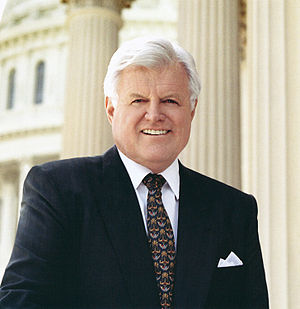The
United States signed the United Nations
Convention on the Rights of Persons With Disabilities on Friday. This was a
change of policy position from the previous administration. The treaty prohibits discrimination against the more than estimated 650 people with disabilities. 142 countries have now signed the treaty.
President's Obama's
remarks noted that one in five American's live with a disability. He noted
FDR's disability and the fact the most American's were unaware if it. He also briefly reviewed the Americans With Disabilities Act and the Individuals With Disabilities Education Act.
 Franklin D. Roosevelt via last.fm
Franklin D. Roosevelt via last.fm
You can read the entire treaty
here. Other helpful information concerning the convention can be found at this United Nations
website.
I am wondering whether this treaty might be argued as additional authority in special education due process hearings in the U.S. This proves two things: I am very thoughtful and I have too much time on my hands. The answer is probably not, but there are two provisions that might be argued.
Article 23 deals with separation of parent and child because of the disability of either.
Article 24 deals more directly with education and states that countries "... are to ensure equal access to primary and secondary education, vocational training, adult education and lifelong learning. Education is to employ the appropriate materials, techniques and forms of communication. Pupils with support needs are to receive support measures, and pupils who are blind, deaf and deaf-blind are to receive their education in the most appropriate modes of communication from teachers who are fluent in sign language and Braille. Education of persons with disabilities must foster their participation in society, their sense of dignity and self worth and the development of their personality, abilities and creativity"
What do you think. Will this come up in special ed hearings?
![Reblog this post [with Zemanta]](http://img.zemanta.com/reblog_e.png?x-id=18578de2-3c2c-4acb-8e34-4a87af21ddfa)
 Image via Wikipedia
Image via Wikipedia

![Reblog this post [with Zemanta]](http://img.zemanta.com/reblog_e.png?x-id=570dc0cb-5156-4805-a7e2-b91c81e27d92)


![Reblog this post [with Zemanta]](http://img.zemanta.com/reblog_e.png?x-id=0e0ad2cb-23ea-4636-ba45-c5b54495fa6d)

![Reblog this post [with Zemanta]](http://img.zemanta.com/reblog_e.png?x-id=27d618de-1c59-4fbc-9058-bb53eb5ca5fa)
![Reblog this post [with Zemanta]](http://img.zemanta.com/reblog_e.png?x-id=dc568819-0017-4966-8529-b6c98ba9b772)


![Reblog this post [with Zemanta]](http://img.zemanta.com/reblog_e.png?x-id=9a553952-d22d-4973-9097-44bfc64e3900)


![Reblog this post [with Zemanta]](http://img.zemanta.com/reblog_e.png?x-id=18578de2-3c2c-4acb-8e34-4a87af21ddfa)
